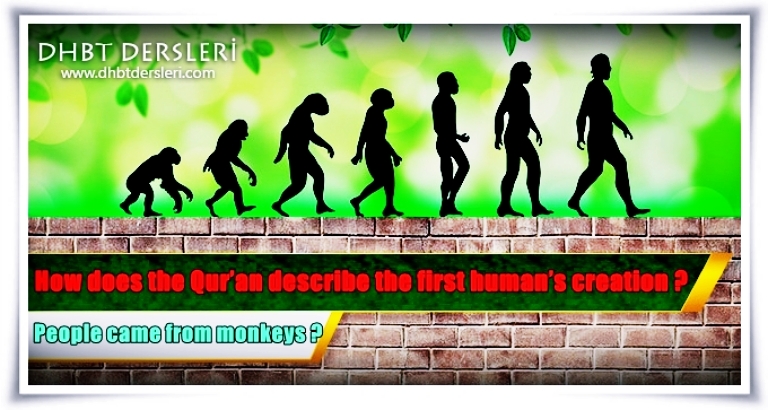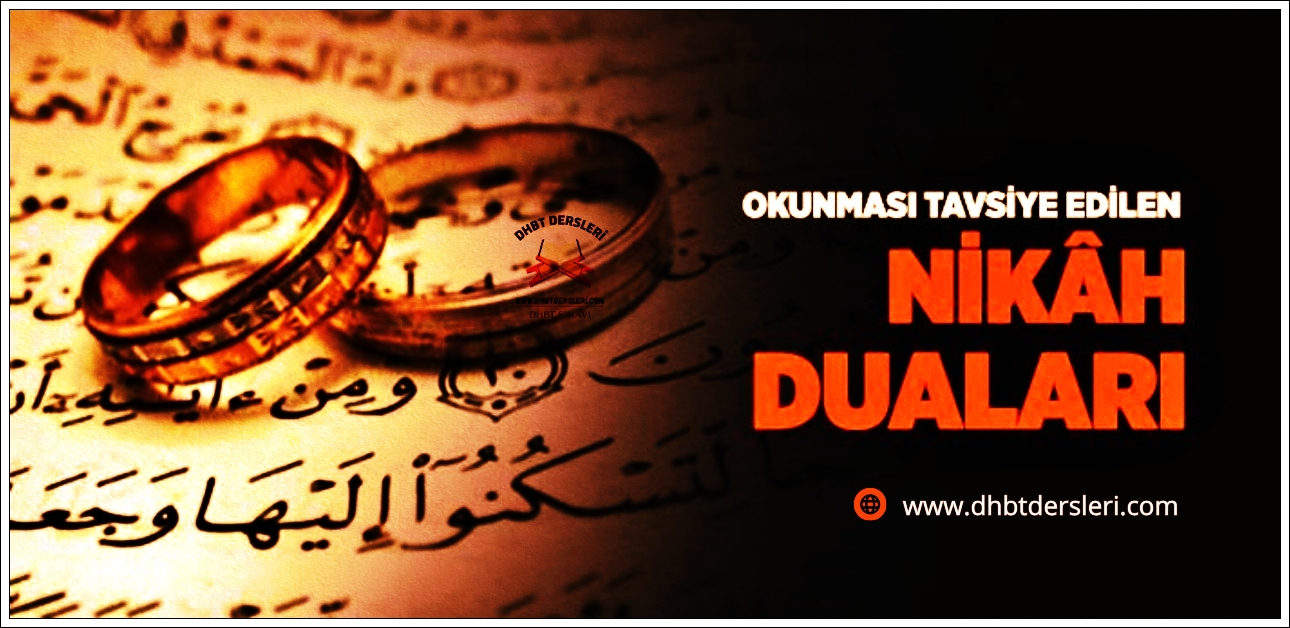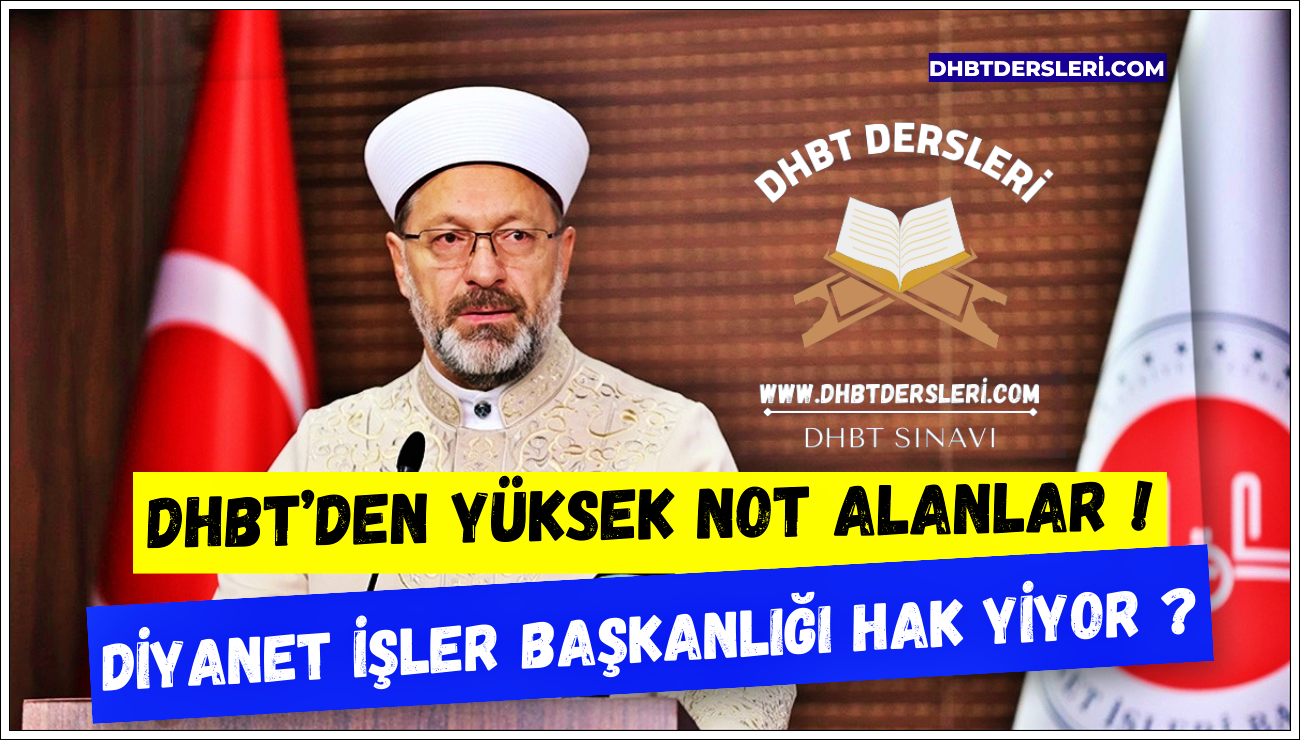How Does The Qur’an Describe The First Human’s Creation ?
The Qur’anic âyahs on the creation of the first human are spread like pieces of a puzzle. Putting them comprehensively together is left for the reader’s knowledge, thoughts, and intellectual capacity.
According to the Qur’an, there was “an endless span of time before man [appeared, i.e. a time] when he was not yet a thing to be thought of” (‘Insan 76:1).
The Qur’an teaches that the period of human’s creation was not an instant process. The human was created as a result of long processes (atvâr) (Nuh 71:14). This long “humanization” process included three stages:
1. The period of basic state before becoming a human: The following elements contribute to the process: “dust” (Haj 22:5), “sound-making clay” (Hijr 15:26), “clay like that of pottery” (Rahman 55:14), “clay from an altered black mud” (Hijr 15:28), “clay commingled with water” (appropriate for organic being reproduction) (Saffat 37:11), and an “extract of clay” (Mu’minun 23:12). All these states of soil are not the usual kinds of clay and mud as humans are accustomed to.
2. The period of a biological state before becoming a human: “We made out of water every living thing” (‘Anbya’ 21:30). Single-cell entity (al-nafsu wahidah) was first created (Nisa’ 4:1). The Qur’an uses the name of the first human, Adam, to denote the entire humankind as well (A`raf 7:11).
The creation of Adam did not happen suddenly when Allah “said unto him, ‘Be’ – and he was”; Allah said to Adam, “ ‘Be!’ – and he entered the process of being” (‘Ali`Imran 3:59).
Because the present tense verb “fa yakun”denotes “renewal” (tajaddut) and “continuity” (“duration”); further, it denotes all three tenses—past, present and future—at the same time.”The Qur’an calls the living entity, which came around after these two processes, a “bashar” (Hijr 15:28).
The “bashar” that became a human later will always keep that aspect of his/ her nature. While humans were still bashar, Allah chose them among the animate creation to bestow reason, will and conscience (‘Ali`Imran 3:33).
The bashar is breathed a spirit into, which made him into human being. This spirit is the gift of mind, reasoning, conscience and will. Angels were then ordered to bow down to this newly breathed human being (Baqarah 2:30; Sajdah 32:9).
The angels then said to Allah, “…Wilt Thou place on it such as will spread corruption thereon and shed blood…?” Because humans are still bashars, since Allah did not breath into them of His spirit yet. The bashars are still, therefore, “spread corruption and shed blood.” Given the fact that ancient humans’ blood type was 0, known be carnivorous’ creatures blood type, it is no surprise that bashar shed blood before the spirit was blown into them. After the spirit was breathed, the human kind became capable of using mind and reasoning, for example, in naming things (Baqarah 2:31).
3. The period as an embryo in the womb: This process happens both before and after becoming a human. This is a process common between the humankind and animals to date. This period is discussed in a way that our modern day medicine also confirms (Mu’minun 23:14).
The Qur’an says each human (al-insân) is created from “a drop of sperm intermingled” (nutfah) (‘Insan 76:2). According to the grammar rules, the word “al-insân” (the human) mentioned in the âyah 2 of the surah Al-’Insan (No. 76) includes the very first human being as well.
What does the phrase “Allah breathed of His own spirit” into Adam mean ?
The phrase “Breathed into him of My spirit” represents Allah’s engagement in the process of turning bashar into al insân. This fact completely refutes claims that humankind came about by accident. The human is not a creation that blind nature would be able to produce out of nothing.
The Qur’anic phrase “Breathed into him of My spirit” absolutely does not entail humans carry a portion from Allah within themselves either. The Qur’an does not permit such an interpretation.
The phrase in question is a figurative speech whose use is unavoidable when discussing divine actions of Allah. Just like blowing at a fire does not mean one’s part, indeed spirit, migrates into the fire, Allah’s spirit breathed into Adam does not migrate into him or his progeny. Because Allah is al-Samad (Ikhlas 112:2), which approximately means “non-breakable and impermeable” along with “The Uncaused Cause of all beings.”
What does the Qur’an say about spirit and body ?
The Qur’an says humans are given very limited knowledge and information about spirit; it orders the Prophet to say the following: “And they will ask thee about [the nature of] spirit. Say: “The spirit [comes] at my Sustainer’s behest; and [you cannot understand its nature, O men, since] you have been granted very little of [real] knowledge” (‘Isra’ 17:85).
This divine âyah speaks to the believing interlocutor that he/she would never be able to fully comprehend spirit and its dimensions. At the same time, this âyah informs humans that they have limited knowledge of anything unseen to them and they must rely on Allah in such matters.
Islam does not claim the human body is bad in and of itself. The Qur’an does not offer the body to perform that, which it is unable to. On the contrary, the body is a vehicle for performing goodly actions (al-‘amal al-sâlih), which are the second most important elements in humans that Allah draws attention to after faith in Him. Therefore, the Islamic thought defines the body as “the horse of spirit.” If humans fail to nourish “horses” in a decisive battle over their soul against corrupting inner desires, they would inevitably lose that battle.
Is there a distinct difference between body and spirit ?
In the Qur’an, there is no clear-cut difference between spirit and body. The Qur’an does not permit such an interpretation.
The conclusion one arrives at from the majority of the Qur’anic âyahs on the topic is the following: the link between spirit and body is similar to the link between reason and brain, meaning and word, and electricity and cable. In short, spirit and body are not two opposites in different poles, but are two aspects of one whole.
Why did Allah order angels to prostrate before Adam ?
The angels’ prostration to Adam/children of Adam is only a symbolic gesture. The Qur’an informs that stars and trees prostrate as well (Rahman 55:6).
But in this context the word “prostrate” denotes “an object is content with the role Allah assigned to it.” Each and every animate and inanimate being is tasked with specific functions. The existent being lives through its existence in accordance with that purpose. Another proof that angels prostrated to Adam/children of Adam (humans) is the fact that nature is submitted to human’s will and power (Haj 22:65 and Nahl 16:12).
Humans are, therefore, able to use soil, water, and air; humans can utilize land, sea and sky.

































